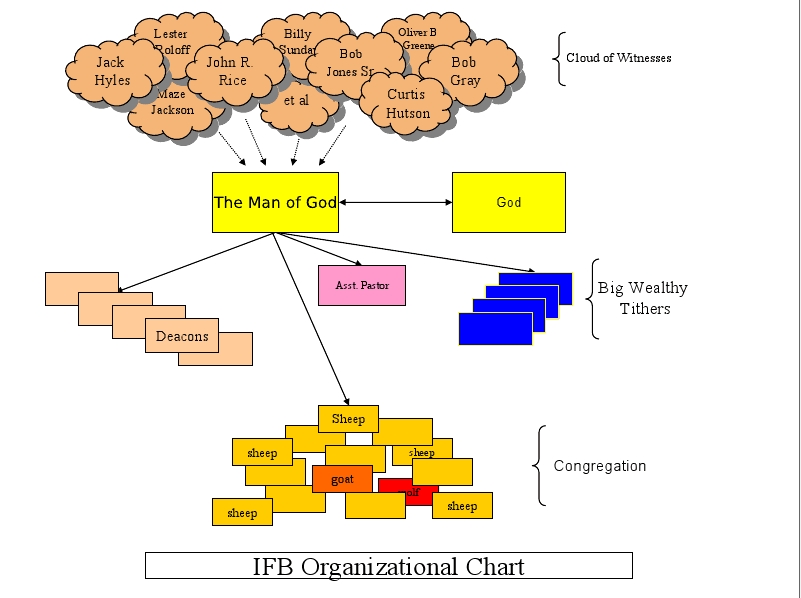
Independent Fundamental Baptists believe that instead of having a plurality of elders, the church leadership should consist of two basic offices: The Pastor and His Flunkies (note: I am totally using this name if I ever start a band). Seriously, though, the offices consist firstly of the Pastor who is the teacher, administrator, CEO, head chef, marketing director, and all-around Grand Poobah in charge of everything. There are also some deacons who are in charge of changing light bulbs and chewing gum removal.
The requirements for becoming a pastor are stringent in fundyland. You have to be male. You have to claim to have heard THE CALLâ„¢. You have to own at least one serviceable suit. You have to not be divorced. And you have to be in the good graces of a couple other pastors. Education, wisdom, gentleness, and professionalism are completely optional.
The requirements for a deacon is that he also be a male who is not divorced. Lord only knows what corruption a divorced man would bring upon the janitors closet. The role of the deacon actually varies from church to church, ranging from “sycophant” to “toady.” Strangely enough, though, the job description found in Acts of of making sure the poor are fed somehow rarely gets much priority. Deaconesses are simply never spoken of.
As for all that stuff in the Bible about bishops, elders, and whatnot…well those are obviously all talking about the same exact job: Divinely Appointed King.



